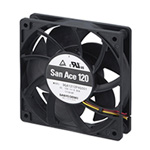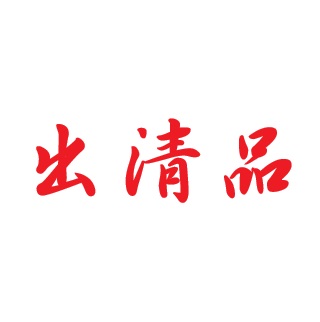-
 ACS
ACS
。運動控制器
。軸卡 -
 。步進驅動器
。步進驅動器
。伺服驅動器 -
 。伺服馬達
。伺服馬達
。步進馬達
。音圈馬達
。線性馬達
。直驅馬達 -
 。回授元件
。回授元件
。光學尺
。磁性尺
。顯示器
。編碼器
。Linear Encoder -
 New Way
New Way
。空氣軸承
。Air conveyor -
 。多孔性陶瓷真空吸盤
。多孔性陶瓷真空吸盤
-
 FMS
FMS
。張力控制器
。張力放大器
。張力感測器 -
 HarmonicDrive®
HarmonicDrive®
。諧波減速機
。直驅電動機
。旋轉執行元件 -
 。減速機
。減速機
。齒輪齒排 -
 Sejin
Sejin
。齒輪齒排 -
 SANYO DENKI
SANYO DENKI
。San Ace 冷卻系統
。SANUPS 電源系統
。SANMOTION 伺服系統 -
 。聯軸器
。聯軸器
。免鍵式軸襯 -
 。定位平台 (滑台)
。定位平台 (滑台)
。史都華平台
。Theta Hybrid Hexapod
。X-Y-Z Table -
 ALIO
ALIO
。Hybrid Hexapod -
 。次系統設備(客製)
。次系統設備(客製)
-
 。電動缸
。電動缸
。千斤頂
。升降器
。線性致動器 -
 。軸承
。軸承
。線性軸承
。線性滑台 -
 i-Autoc
i-Autoc
。固態繼電器SSR -
 Karl Klein
Karl Klein
。鼓風機 -
 特殊環境用
特殊環境用
防爆/防水/真空/
低溫/重載 -
 應用案例影片
應用案例影片
-
 庫存出清
庫存出清
800-1513 & 800-1519


Control Modes
• Indexer, Point-to-Point, PVT
• Camming, Gearing, Position, Velocity, Torque
Command Interface
• Stepper commands
Single-ended or Differential selectable
• CANopen, DeviceNet
• ASCII and discrete I/O
• ±10V position/velocity/torque command
• PWM velocity/torque command
• Master encoder (Gearing/Camming)
Communications
• CANopen/DeviceNet
• RS232
Feedback
• Digital Quad A/B encoder
• Secondary encoder / emulated encoder out
• Analog sin/cos encoder
• Digital Halls
I/O - Digital
• 12 inputs, 4 outputs
Accessories
• External regen resistors
• External edge filter
Dimensions: in [mm]
• 7.5 x 5.5 x 2.5 [191 x 140 x 64]
|
Model |
Vac |
Ic |
Ip |
|
800-1513 |
100 - 240 |
12 |
36 |
|
800-1519 |
100 - 240 |
6 |
18 |
description
The 800-1513/1519 combines CANopen networking with 100%
digital control of brushless or brush motors in an off-line powered
package that can operate from single or three-phase mains. These
models have stepper signal inputs that are programmable as either
single-ended or differential.
800-1513/1519 operates as a Motion Control Device under the
DSP-402 protocol of the CANopen DS-301 V4.01 (EN 50325-4)
application layer. DSP-402 modes supported include: Profile Position,
Profile Velocity, Profile Torque, Interpolated Position Mode (PVT),
and Homing .
Drive commissioning is fast and simple using CME 2™ software
operating under Windows® communicating with 800-1513/1519 via
CAN or an RS-232 link. CAN address selection is by a 16-position
rotary switch on the front panel. If there are more than fifteen
devices on a CAN bus, the additional address bits needed can
come from programmable inputs, or can be set in flash memory.
Profile Position Mode does a complete motion index on command
with S-curve acceleration & deceleration, top speed, and distance
programmable. In PVT mode, the controller sends out a sequence of
points each of which is an increment of a larger, more complex move
than a single index or profile. The drive then uses cubic polynomial
interpolation to “connect the dots” such that the motor reaches each
point (Position) at the specified velocity (Velocity) at the prescribed
time (Time). Homing mode is configurable to work with a variety
of limit, index, and home switches such that the drive moves the
motor into a position that has an absolute reference to some part
of the machine.
Nine logic inputs are programmable as limit or home switches,
stepper/encoder pulse inputs, reset, digital torque or velocity
reference, or motor-temperature. A tenth input is dedicated to
the drive Enable function. Three programmable logic outputs are
for reporting an drive fault or other status indications. A fourth
optically-isolated output can drive a motor brake from the external
+24 Vdc power supply or can be programmed as a logic output.
In addition to CANopen motion commands, 800-1513/1519 can
operate as a stand-alone drive. Current and velocity modes accept
±10 Vdc analog, digital 50% PWM or PWM/polarity inputs. In
position mode inputs can be incremental position commands from
step-motor controllers in Pulse/Direction or CW/CCW format, as
well as A/B quadrature commands from a master-encoder. Pulse
to position ratio is programmable for electronic gearing.
Power output of the drive varies with the input power which can
range from 100 to 240 Vac, and from 47 to 63 Hz. Either single or
three phase mains can be used giving 800-1513/1519 the ability
to work in the widest possible range of industrial settings. Signal
and control circuits are isolated from the high-voltage power supply
and inverter stage that connect to the mains. A +24 Vdc input
powers control circuits for keep-alive operation permitting the drive
power stage to be completely powered down without losing position
information, or communications with the control system.

